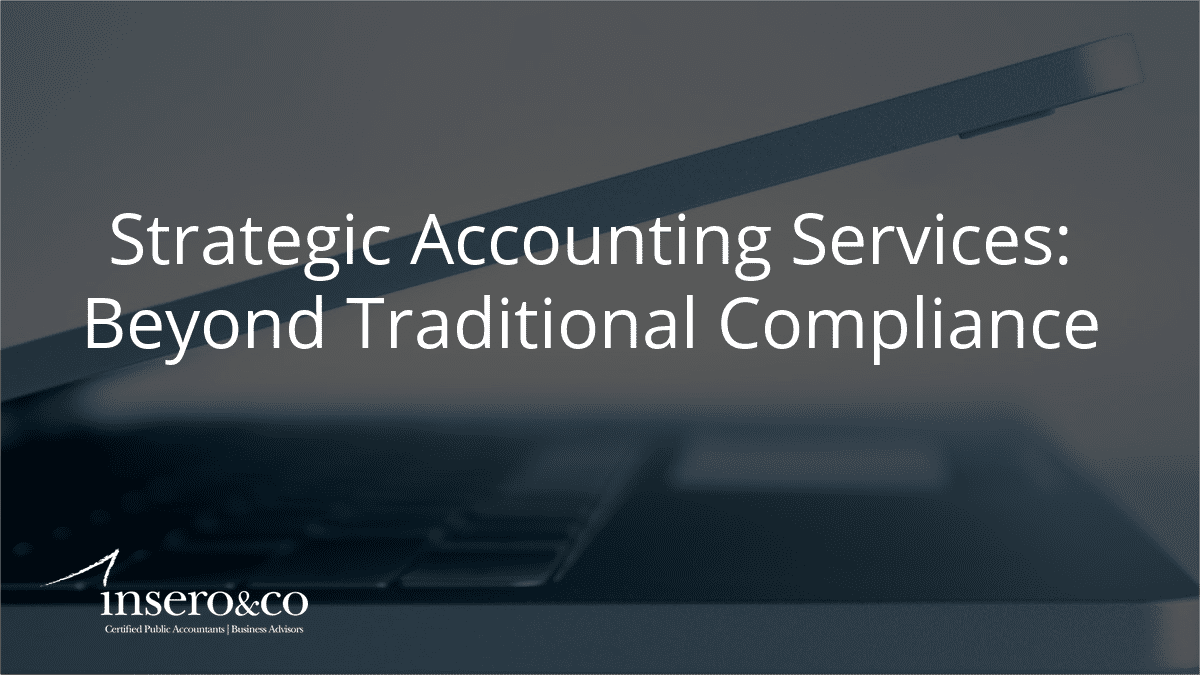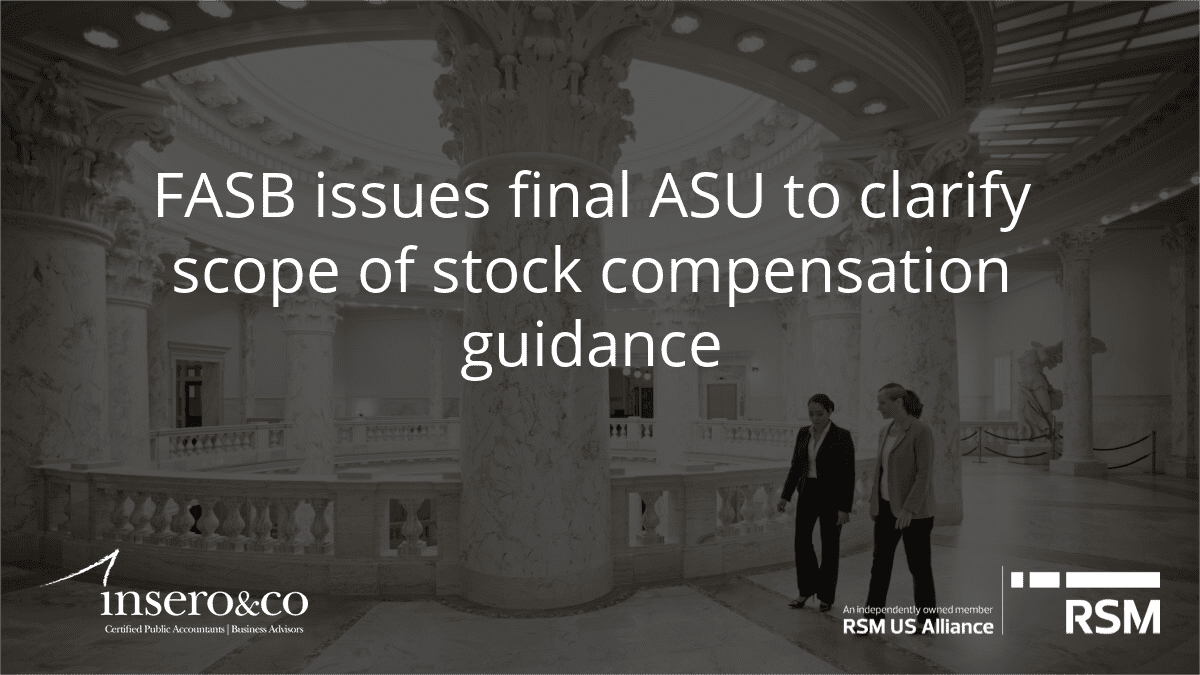ARTICLE | June 05, 2021
Think of it as the ultimate job interview.
However, you are not hiring an individual. You are recruiting an entire organization—one that can, if you choose wisely, improve your business, enhance your efficiency and perhaps even enrich your company’s culture.
A managed service provider (MSP) can tackle crucial business functions that are outside your organization’s primary focus, or it can provide your company with additional resources and a vast knowledge base that goes beyond your immediate employees. But whether you’re looking to outsource your financial accounting, or have someone handle your IT needs, you will want to ask the following questions when selecting a managed service provider:
1. What is your industry expertise and experience?
Let’s start with this most basic of questions. After all, if your MSP doesn’t have strong qualifications within your industry, there is probably little reason to continue talking. You will want to hear about your MSP’s past engagements, years of experience and success stories. What is their level of fluency? Do they understand the segments of your industry, as well as the nuances and subtleties of your business? For example, does the MSP understand how FDA validation works or what it takes to build and support a bioinformatics platform? Listen for their analysis of trends, key business applications and compliance needs within your industry and how they have met the expectations of their previous clients.
2. How well does the contract “flex”?
Back in 2019, how many of us predicted that a pandemic would devastate the country? Exactly.
Unforeseen circumstances arise with disturbing regularity, so it’s vital to know the level of flexibility that your contract affords. And it’s not just negative developments like COVID-19 that you may need to address. What if your business booms, and you double your workforce or add locations? In such situations, will your contract be a safe zone or a prison? You’re looking for a degree of flexibility that will not lock you into a contract drawn up when the world was very different. For example, a current trend is the user-based pricing model, in which your usage of the product influences the fees you pay—so if you use more, you’re charged more, and if you use less, you’re charged less. Options such as this may help to keep your contract relevant to your needs.
3. How will you scale with our business?
Similar to the previous question, how will the MSP adjust when/if the environment changes? Are they not just willing, but fully capable of, altering their approach? Because change is constant in any industry, your MSP should not just roll with fresh developments, but anticipate them. In cases of rapid evolution, perhaps your MSP needs to reassess your current services, or offer an industry-specific solution, or create an entirely different suite of services. Regardless of the circumstances, you don’t want to outgrow your MSP, so make sure that your potential partner can scale with your needs.
4. Describe the engagement team structure and their experience. Can I meet them?
Clearly, you will want to get to know the people with whom you are entrusting your business. How many clients do they have? Can they give your business the attention that it requires? Beyond the bios and résumés, however, keep in mind that cultural fit is important. Do you get a good feeling interacting with the engagement team, or is there a vague sensation that something isn’t right? Remember that the whole team has to be impressive, not just its leaders.
5. How well does your geographic coverage overlap with my business?
This is especially crucial if you have multiple offices or international operations. But it’s relevant even if you have just one location. Will their team members be available to come into your office, if needed, or will they have to hop on a plane? Will you be expected to adjust to multiple time zones and a far-flung team, or will there be a point person in your city? In essence, to what degree can you count on your MSP to work around your schedule, not the other way around?
6. What additional services do you offer?
You’re well aware of the reasons why you’re hiring the MSP, of course, but part of running a successful business is keeping an eye on the future. So if new needs come up, or delayed projects come to the forefront, will the MSP be able to tackle them? For example, you may be engaging the MSP for managed IT services, but perhaps they can help with your cybersecurity or an ERP selection effort down the line. Can they handle both? You will want to have a clear idea of your MSP’s additional capabilities and how you can access them, rather than getting stuck in a situation where you scramble for a new provider later.
7. What training resources and communication strategies do you use?
Nobody likes jargon. We all want concise statements and clear communication. It seems, however, that we rarely receive this.
You want to be sure that your MSP not only grasps the issues, but can explain new technologies or changes in procedures to your people. How does the MSP train users and ensure the adoption of new technologies and business processes? How do they communicate innovative ideas? Most importantly, will they be proactive about change management, or will they leave it to you to figure everything out? Good MSPs come to the table with well-established learning platforms and customized user journeys.
This is where your MSP’s soft skills come into play. Your provider should make you feel confident in their ability to implement solutions, of course, but an effective MSP will also put you at ease when it comes to communicating the new approach.
8. What is the procedure for handling cyber-related incidents?
Basically, what if something goes horribly wrong? You do not want to hear, “That will never happen” or “We’ll address that if it comes up” or “Just trust us.”
Your MSP should have a coherent approach for dealing with a crisis. What is the incident-response plan? What is your responsibility? What is the MSP’s responsibility? When does the issue become a bigger problem? Of course, you hope that it will never happen, but you need to know in advance how your MSP will react in an emergency.
9. What best practices, frameworks and certifications will you bring to the engagement?
Your MSP should be eager to discuss things like ITIL and SOC 2 compliance. This evidence of their competence is not a nice-to-have. It is a basic requirement and a crucial part of ensuring that you are hiring the right provider for your business.
What level of competency does your MSP display from a technology perspective? Ideally, your MSP goes beyond the basics and stays on the cutting edge of innovation.
10. What service-level agreements (SLAs) do you offer?
Defining the measurable metrics that are within your MSP’s control is an integral part of choosing the right provider. Has your MSP set reasonable standards for uptime, response time and other benchmarks? Who will address certain problems, and which issues are out of scope? What are the proposed remedies for common issues, and what are the penalties for failing to take corrective action? Agreeing on the details of the SLA increases the odds that there will be no unpleasant surprises or disagreements once the engagement gets going.
11. How do you go about strategic planning, roadmapping and staying current on trends?
You don’t want to drag your MSP uphill to meet your needs. Nor do you want to restart the engagement because your MSP planned poorly or overlooked key changes in your industry. So find out how your MSP onboards new clients, and how you can help ensure that the engagement begins with a solid foundation. Ask about quarterly business reviews, reporting on SLAs, next steps, regular updates and other fundamental aspects of the communication process. Be sure to verify that your provider stays on top of developments and won’t need you to nudge them into action. Your MSP should be proactive in offering ideas and providing insights, rather than waiting for you to lead them to a solution.
12. How do you assess if an engagement has been successful?
What will be the return on your investment? You’re looking for hard data, of course—items laid out in your SLA as well as other objective measurements of improvement. But in addition to the standard metrics used to gauge success, how does your MSP evaluate concepts like client satisfaction? Are they interested in having a positive impact on your organization’s culture, or are they just focused on executing their tasks? Ultimately, how will your MSP determine if the engagement met or exceeded your expectations, and do you agree with those standards?
A good MSP can solve problems that have long been hindering your organization. They may also resolve issues that you didn’t even know you had. But even more than that, a solid MSP can help develop your staff. They can coach and mentor your people. They can bring in expertise and experience that go beyond fulfilling the stages of the contract, and help take your business to the next level.
Do you have questions or want to talk?
Call us at (800) 232-9547 or fill out the form below and we’ll contact you to discuss your specific situation.
This article was written by Diego Rosenfeld and originally appeared on Jun 05, 2021.
2022 RSM US LLP. All rights reserved.
https://rsmus.com/insights/services/managed-services/12-questions-to-ask-when-selecting-a-managed-service-provider.html
RSM US Alliance provides its members with access to resources of RSM US LLP. RSM US Alliance member firms are separate and independent businesses and legal entities that are responsible for their own acts and omissions, and each are separate and independent from RSM US LLP. RSM US LLP is the U.S. member firm of RSM International, a global network of independent audit, tax, and consulting firms. Members of RSM US Alliance have access to RSM International resources through RSM US LLP but are not member firms of RSM International. Visit rsmus.com/aboutus for more information regarding RSM US LLP and RSM International. The RSM(tm) brandmark is used under license by RSM US LLP. RSM US Alliance products and services are proprietary to RSM US LLP.

Insero & Co. CPAs, LLP is a proud member of RSM US Alliance, a premier affiliation of independent accounting and consulting firms in the United States. RSM US Alliance provides our firm with access to resources of RSM US LLP, the leading provider of audit, tax and consulting services focused on the middle market. RSM US LLP is a licensed CPA firm and the U.S. member of RSM International, a global network of independent audit, tax and consulting firms with more than 43,000 people in over 120 countries.
Our membership in RSM US Alliance has elevated our capabilities in the marketplace, helping to differentiate our firm from the competition while allowing us to maintain our independence and entrepreneurial culture. We have access to a valuable peer network of like-sized firms as well as a broad range of tools, expertise, and technical resources.
For more information on how Insero & Co. CPAs can assist you, please call (800) 232-9547.




